7 plants that repel pests - from aphids to mosquitos this is how to naturally deter them from your garden
Stop unwanted garden visitors in their tracks – with plants! Yes, really!
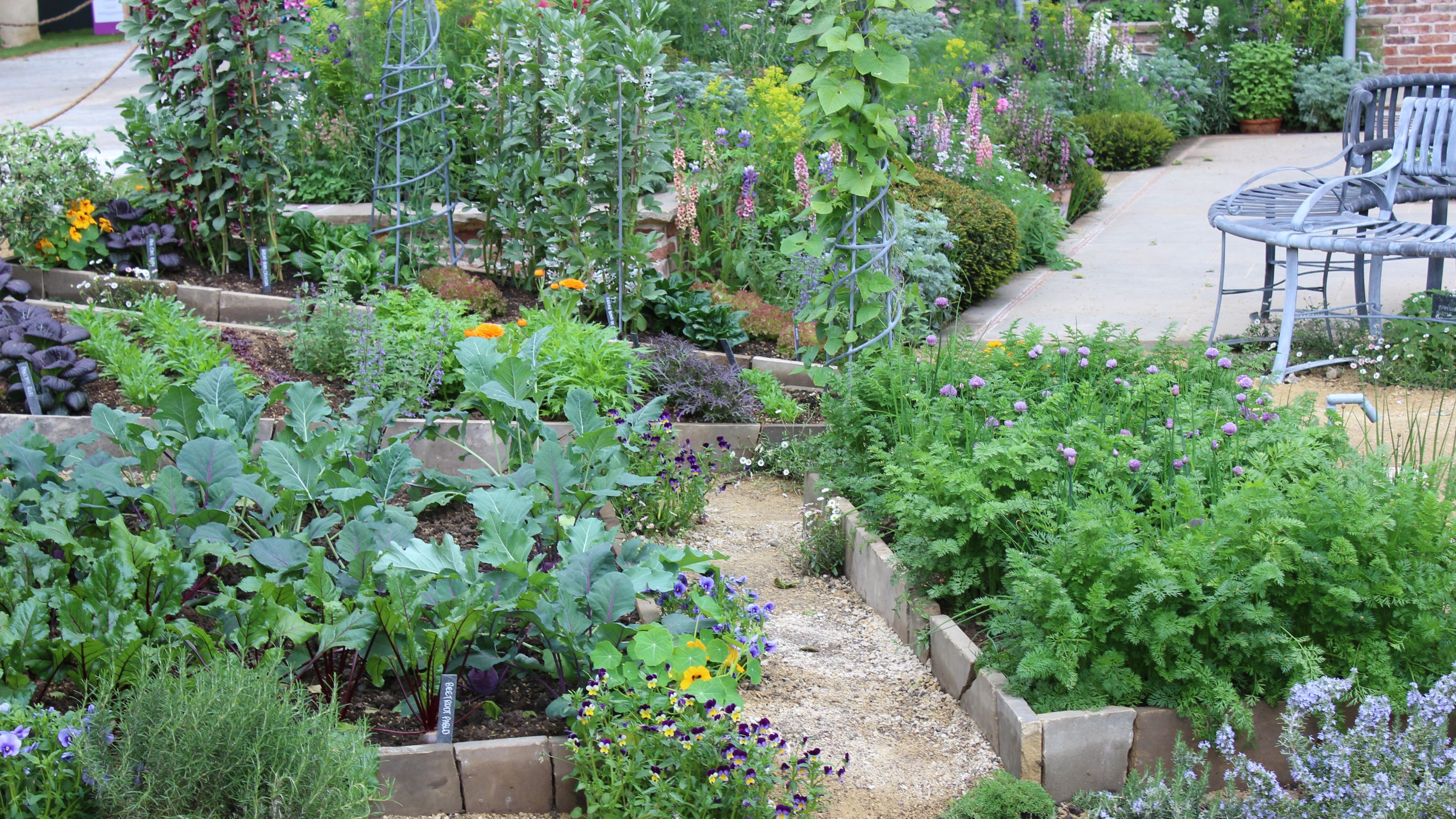
One of the eternal issues for gardeners is how to keep pests away from the garden, but as we are all becoming more environmentally conscious and aware of the need to support a biodiverse outdoor space and its pollinators, this has become slightly trickier. However, some pest-repellant plants could help you out.
In years gone by, growers would have reached for sprays, pellets and any number of chemicals that we now know are extremely harmful to the world around us to tackle common garden pests. So, what can you do instead?
As well as the slug patrols at night with a torch (not to everyone’s tastes) and the buying in of nematodes and other organic options, using plants with pest-repelling properties is a fantastic idea – and has the dual benefit of not only keeping pests at bay but also adding extra beautiful, fragrant and in some cases, delicious, plants to your repertoire, so you don’t need to sacrifice the look or functionality of your space.
We have some brilliant garden ideas to help you use your own garden plants to protect their neighbours.
What to consider when adding pest repelling plants to your garden
Emma O’Neill from Garden Organic explains 'As with any plant choices you need to consider if you have the right plant for the right soil type and aspect. Also what, if any, aftercare will be required?
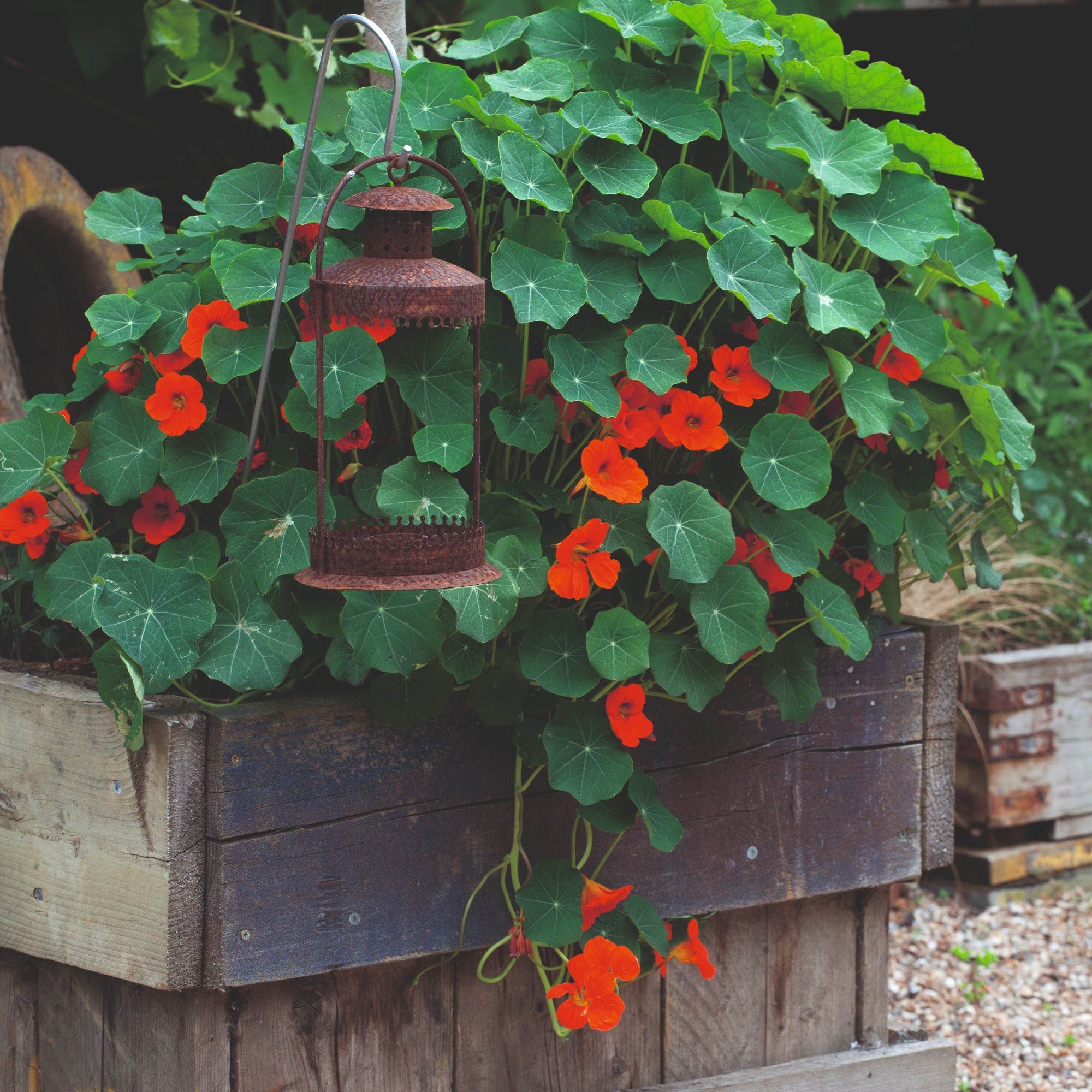
'It’s also important to remember that some plants are considered toxic so if your main objective is pest deterrent this must be taken into account. There are no cure-all solutions, and it’s about creating balance and a healthy garden ecosystem. Many creatures we consider ‘pests’ are in fact doing important jobs in the garden.'
'Companion planting can be useful. For example, insects such as ladybirds, lacewings and hoverflies are predators of pests such as aphids and caterpillars. Providing a food source and home for these predators increases their chances of survival. To do this, make sure you have a range of flowering plants grown together to create a succession of pollen and nectar throughout the growing season. Mix coriander or fennel flowers, the Californian poppy (Eschscholtzia californica), poached-egg plant (Limnanthes douglasii) and calendula (Calendula officinalis) within your vegetables.
Get the Ideal Home Newsletter
Sign up to our newsletter for style and decor inspiration, house makeovers, project advice and more.
'Some plants can also deter pests from their neighbours. The bright yellow/orange petals of marigolds, for example, planted next to tomatoes attract the white fly away from the tomato plants. Nasturtiums will pull blackfly away from beans, and Chinese cabbage will attract cabbage white butterflies away from neighbouring brassicas.'
If you want to give some companion planting ideas or other strategic pest-repelling planting a go but aren’t sure where to start, here are seven of our favourite pest-repelling plants.

Emma O’Neill is Garden Organic’s head gardener, She first studied horticulture at Pershore College in 2001 and has been gardening professionally since 2003 - working in a variety of different sites from National Trust gardens to a large private estate. She now manages a team of staff and volunteers, writes gardening articles for magazines and creates the occasional show garden. Her passion is herbaceous perennials and all things floral, but she loves to try new things.
1. Lavender
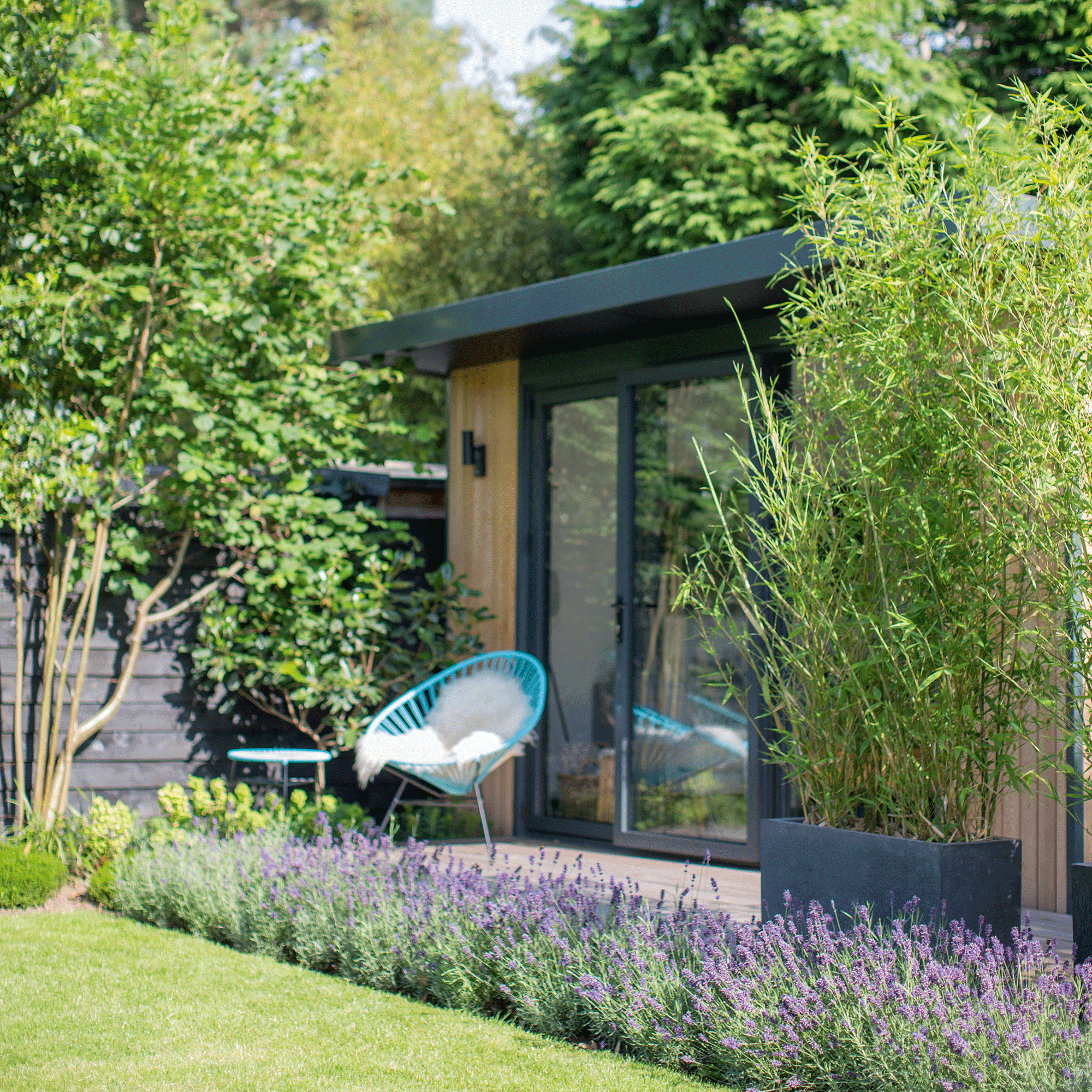
A real hero of the garden, lavender not only looks beautiful, attracts pollinators, and can be dried for use in a number of different ways, but it is also a handy pest repellent. Fleas, flies and moths will all avoid the scent given off by the tiny purple flowers. It is extremely easy to grow and propagate, and can be grown either directly in the ground, or in pots so can suit any space.
Where to buy lavender:
2. Nasturtium

Something of a sacrificial plant, nasturtiums are not only appealing to humans and pollinators but also to pests. They are so appealing, in fact, that planting them near your roses and your brassicas can keep these prized crops from harm, as the troublesome aphids that regularly attack them will often prize the nasturtium even higher than your blooms and veg!
Where to buy Nasturtium:
3. Rosemary
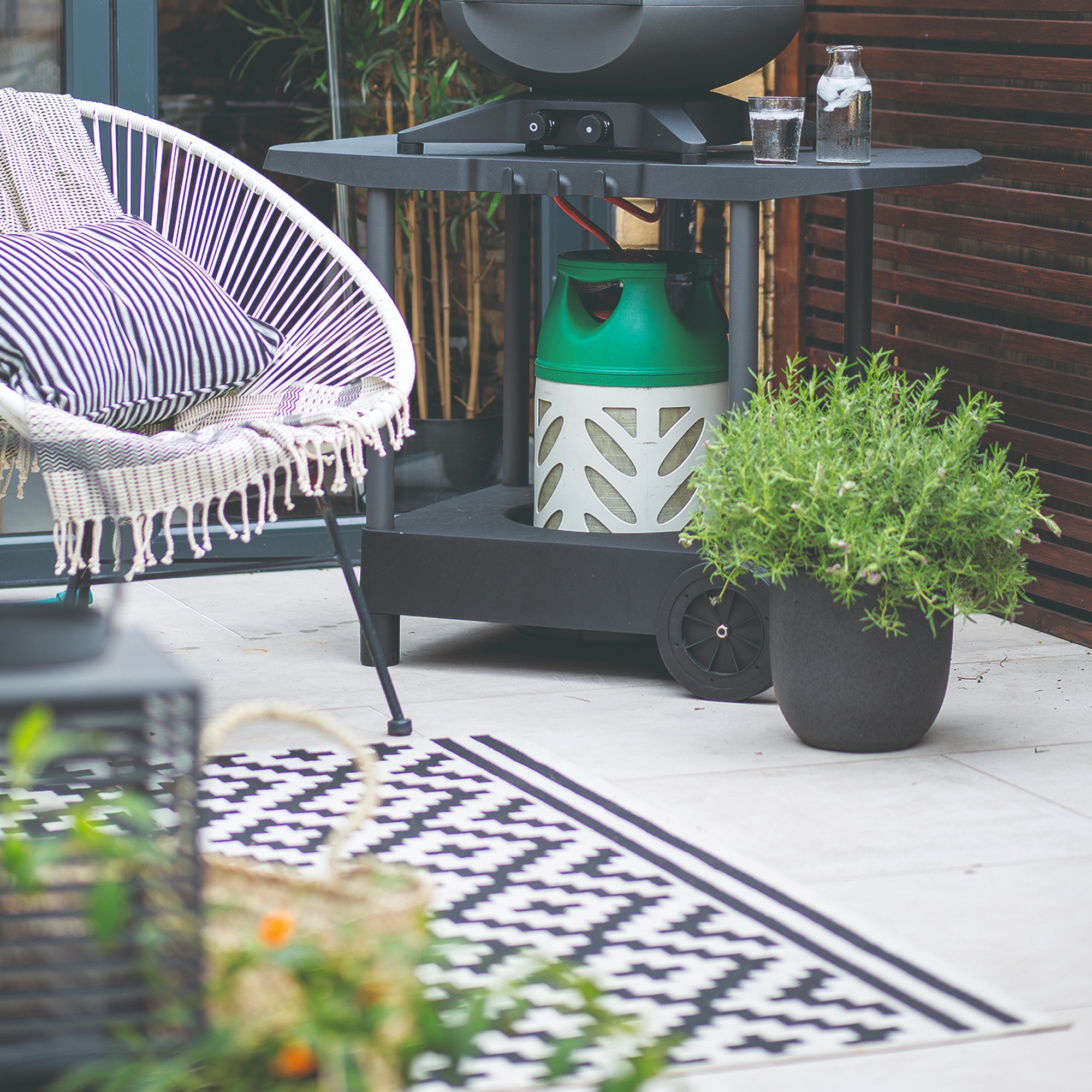
A wonderful addition to any garden thanks to its gorgeous aroma and attractive, spiky green stems – rosemary is so much more than the perfect partner to lamb recipes.
Growing rosemary plants will help to deter mosquitoes and carrot flies. It is another herb that grows well either in the ground or in containers, so even those with small gardens can enjoy the benefits.
Where to buy rosemary:
4. Mint
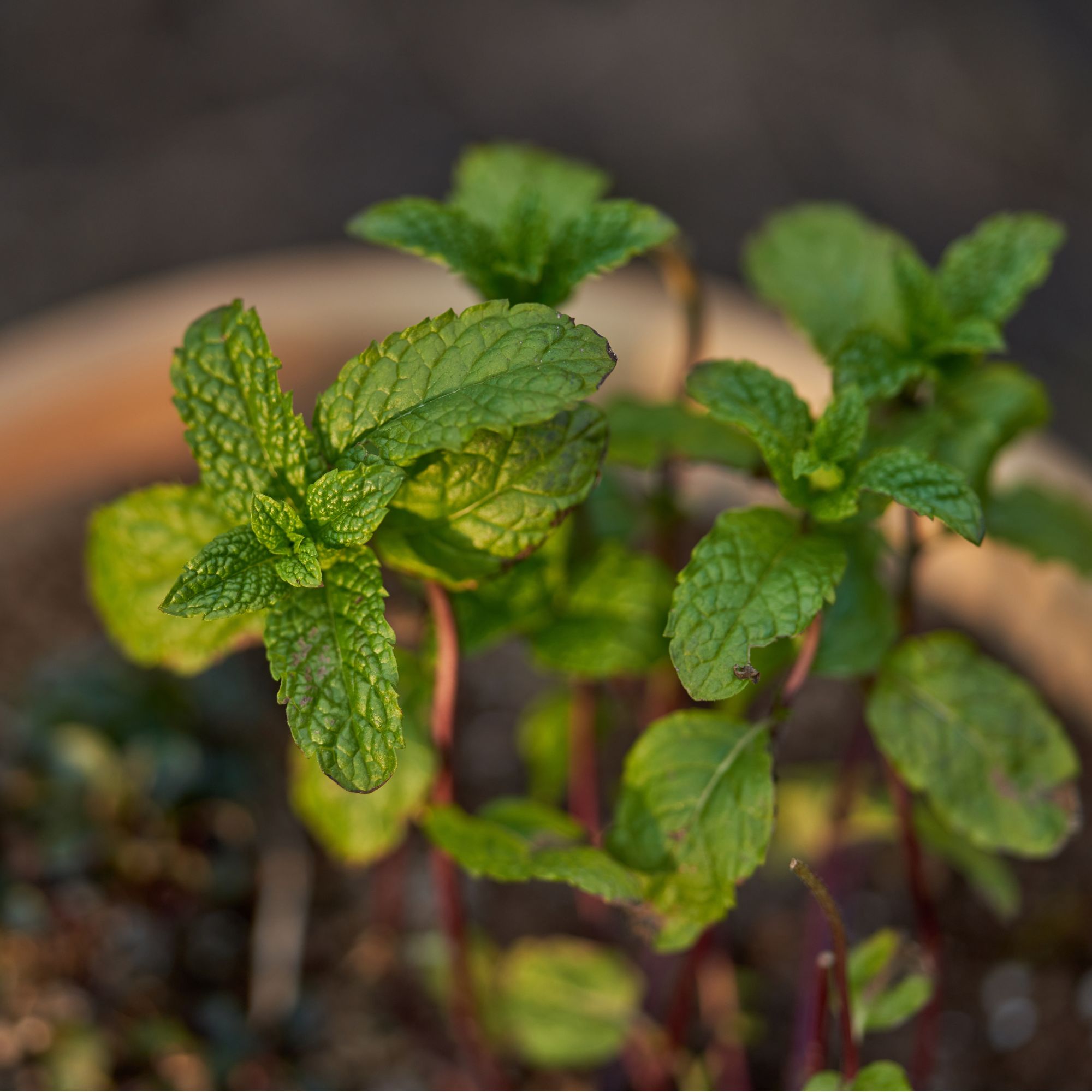
You would be looking for a long time to find a plant as versatile as mint. When it comes to pests, once again it is a hard worker. Depending on the type of mint you are growing, mosquitoes, flies, ticks and fleas can all be discouraged.
Growing mint can also help keep slugs and snails at bay. There are other bedding plants that slugs hate, but mint is one of the easiest to grow.Just remember, mint spreads like wildfire, so do keep it in a pot, unless you want your entire garden taken over.
Where to buy mint:
5. Marigold
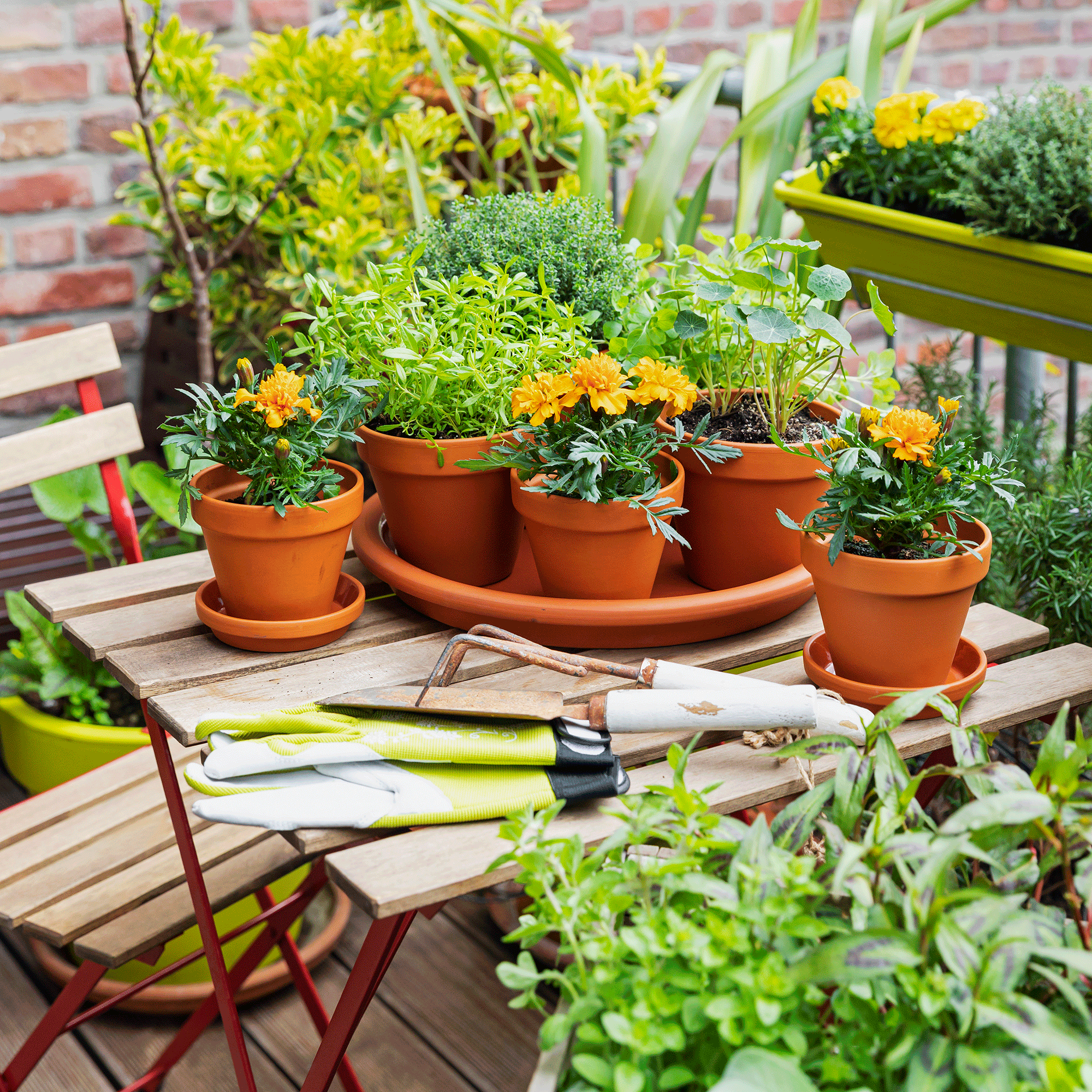
You may well already be growing marigolds for their gorgeous, sunny and bright flower heads – if you are, you will probably notice you aren’t suffering much with blackfly, whitefly and mosquitoes. The essential oils have quite a bitter smell which isn’t appealing to these bugs, but also manage to attract beneficial pollinators, so you will be winning on both fronts!
Where to buy ferns:
6. Lemongrass
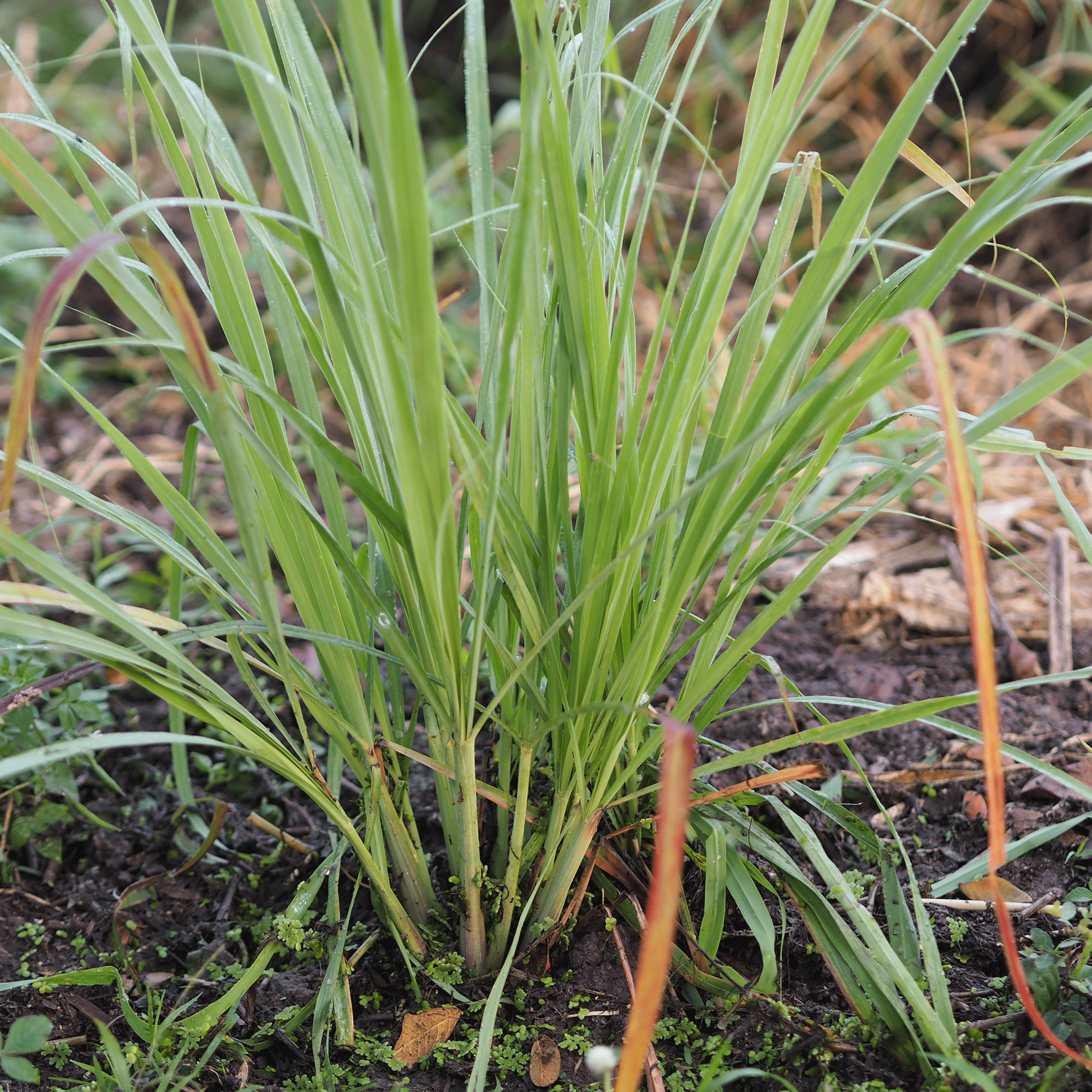
Adding lemongrass to your garden will elevate your cooking – and will lend a helping hand at keeping common pests at bay, too. Mosquitoes don’t like the scent from the oils in the plant, so it is a great plant for repelling mosquitoes when you're dining alfresco.
It isn’t just mosquitoes, though, mice and rats are also not keen on this plant, so is a safe and environmentally friendly way of keeping your garden rodent-free. If you fancy a fun garden project, you can cultivate lemongrass from stems bought from the supermarket in a glass of water on a sunny windowsill, or the plants are available from a number of suppliers.
Where to buy Lemongrass:
7. Alliums

Gardening journalist and author, Kim Stoddart says 'I'm a huge fan of mixed planting and so have lots of members of the allium family (garlic, leeks, onion, chive and leek) scattered around my vegetable beds. They help disguise and protect vulnerable plants in lots of ways both above and below ground.
'Firstly, their smell helps create a scent barrier. Their unattractive taste (to pests anyway) affords further protection and their height mixed in and around other plants will further confuse, making it much harder for plant destroyers to find what they are looking for.'
Where to buy alliums:
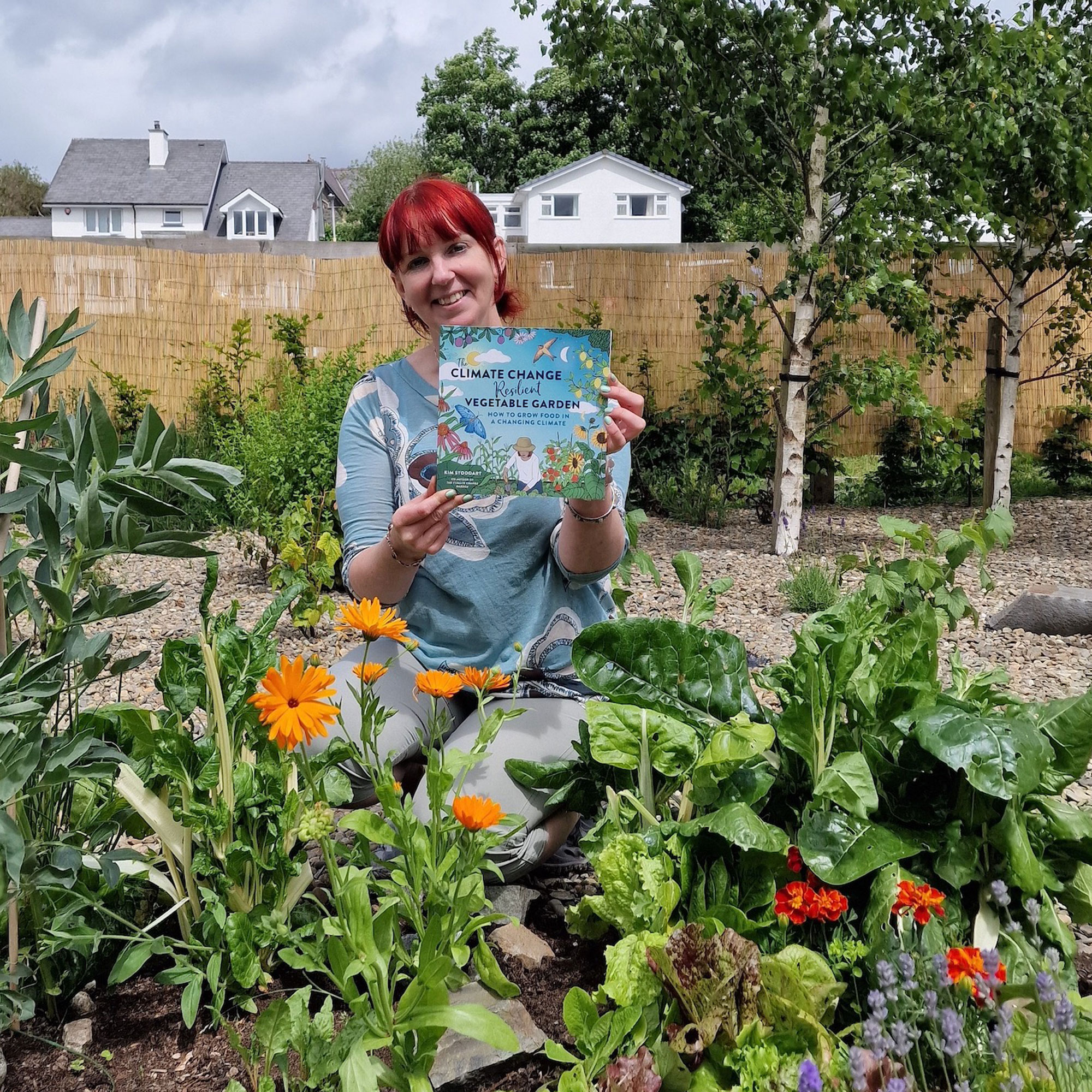
Kim is an award-winning environmental journalist and editor of Amateur Gardening magazine. She is a leading authority on climate change resilient gardening and author of newly published, The Climate Change Resilient Vegetable Garden.
FAQs
What can you do if pets are garden pests?
It isn’t just bugs who can lay waste to our beloved plants, though – sometimes even our own furry family members can become pests in the garden. So, how can you stop your cat (or neighbouring cats) from using your flower beds as a litter tray? Emma has some recommendations:
'The Scaredy Cat Plant (Coleus canina) was bred in Germany for the specific use of deterring cats. It has an unfortunate smell of dog urine! So while this may deter cats, it’s not altogether pleasant to humans either!
'As a general overview, cats are very sensitive to scents and textures. So any strong scented plants can help as a natural deterrent, such as lavender, rosemary and pennyroyal (Mentha pulegium) - a member of the mint family. But it’s worth bearing in mind that they often give off the strongest scent when damaged (think snapped twigs, broken stems). Just planting a row of something won’t deter them. Beware of plants considered toxic such as Rue which can cause illness to cats.'
Which plants repel vermin?
Rats and mice tend to dislike more highly fragranced plants such as lavender, which is very appealing to us, but less so to these little rodents thanks to the essential oils it contains. Mint is another favourite at repelling these furry garden visitors, as its scent tends to overpower other smells that attract them - so the stronger smelling the variety, the better! The benefit of using these plants for the job is they not only keep the pests at bay, but they are also beautiful, and useful!
What smell do bugs hate most?
There are plenty of plants to help deter bugs from the garden (as you will see in our top choices below), but some of the best ones for repelling the widest array of bugs are lavender, marigolds, and many members of the herb family - such as mint, rosemary, sage and more! So, if you've been looking for a reason to add to your herb bed, or expand out from those little windowsill planters, we're here to encourage you to do just that!
Try one or all of these plants in your garden and try your hand at going naturally pest-free.
Laura Hillier is an editor and content writer with more than 10 years of experience in horticulture and women's lifestyle journalism. Passionate about sustainability and the wellbeing benefits of being in the outside world, Laura is keen to inspire everyone to grab a little slice of the good life.
-
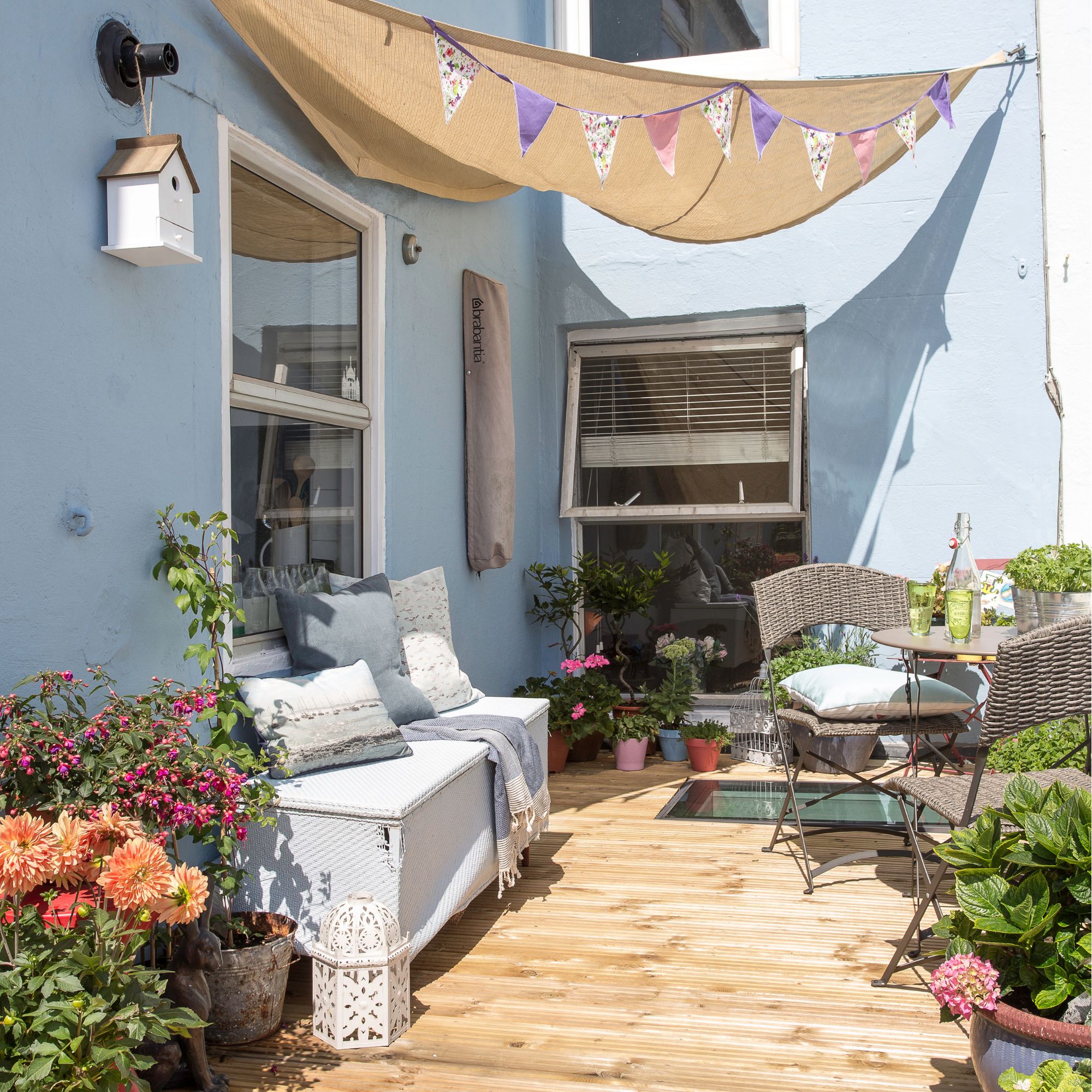 Is a patio or decking better for a small garden? These are the key things landscaping experts say you need to consider before choosing either
Is a patio or decking better for a small garden? These are the key things landscaping experts say you need to consider before choosing eitherWhen it comes to this garden debate, there is no right or wrong
-
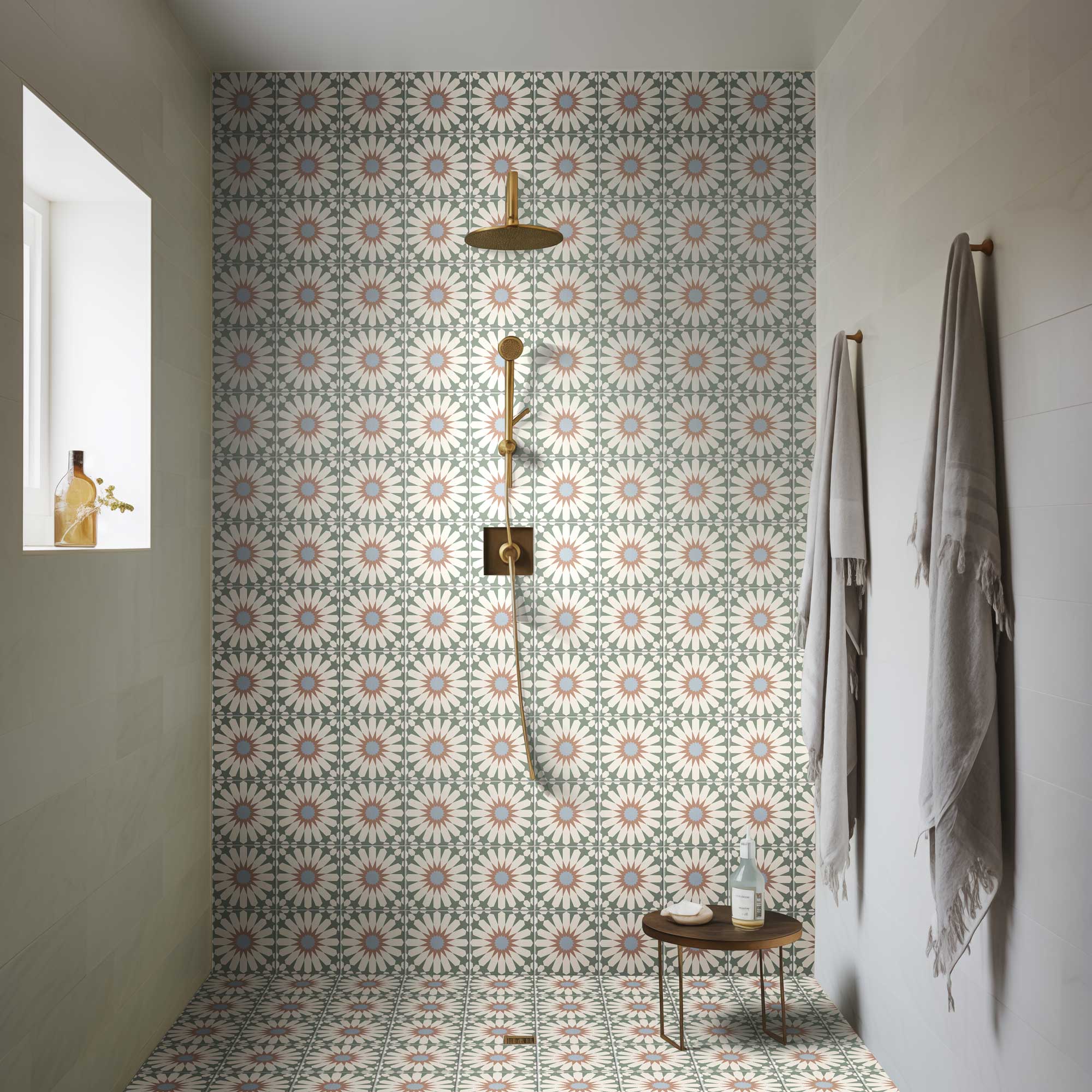 I'm convinced that pistachio green is the next big bathroom colour trend for 2026 - here's how to make it work
I'm convinced that pistachio green is the next big bathroom colour trend for 2026 - here's how to make it workGet ahead by giving your bathroom a pistachio-inspired refresh
-
 How to grow courgettes vertically – my simple step-by-step to this clever small garden trick for a bumper crop this year
How to grow courgettes vertically – my simple step-by-step to this clever small garden trick for a bumper crop this yearIt’s the perfect option for smaller gardens
-
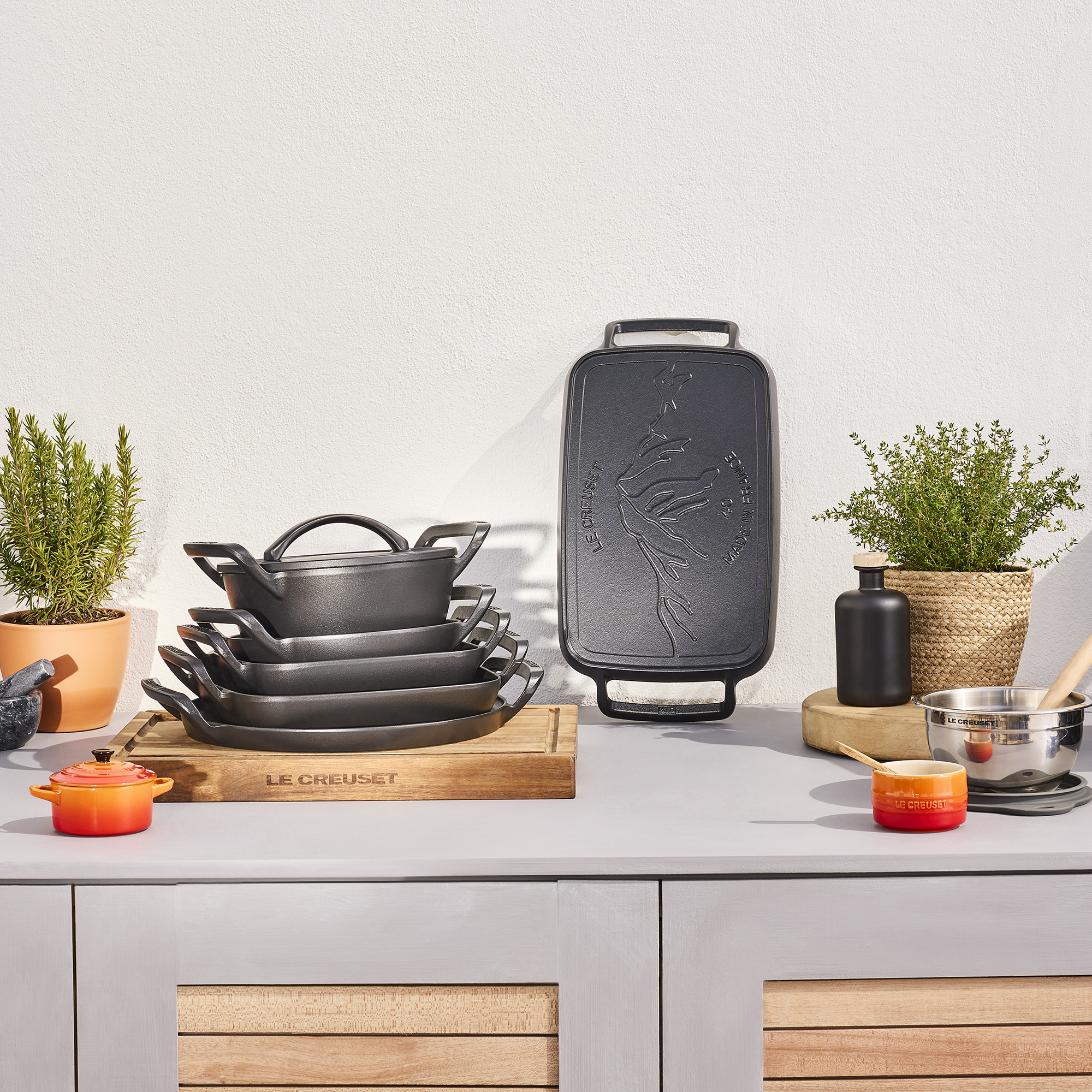 Le Creuset just added some seriously clever BBQ cookware to its cast iron range – I'm already eyeing up the pizza pan
Le Creuset just added some seriously clever BBQ cookware to its cast iron range – I'm already eyeing up the pizza panI'm already eyeing up the pizza pan
-
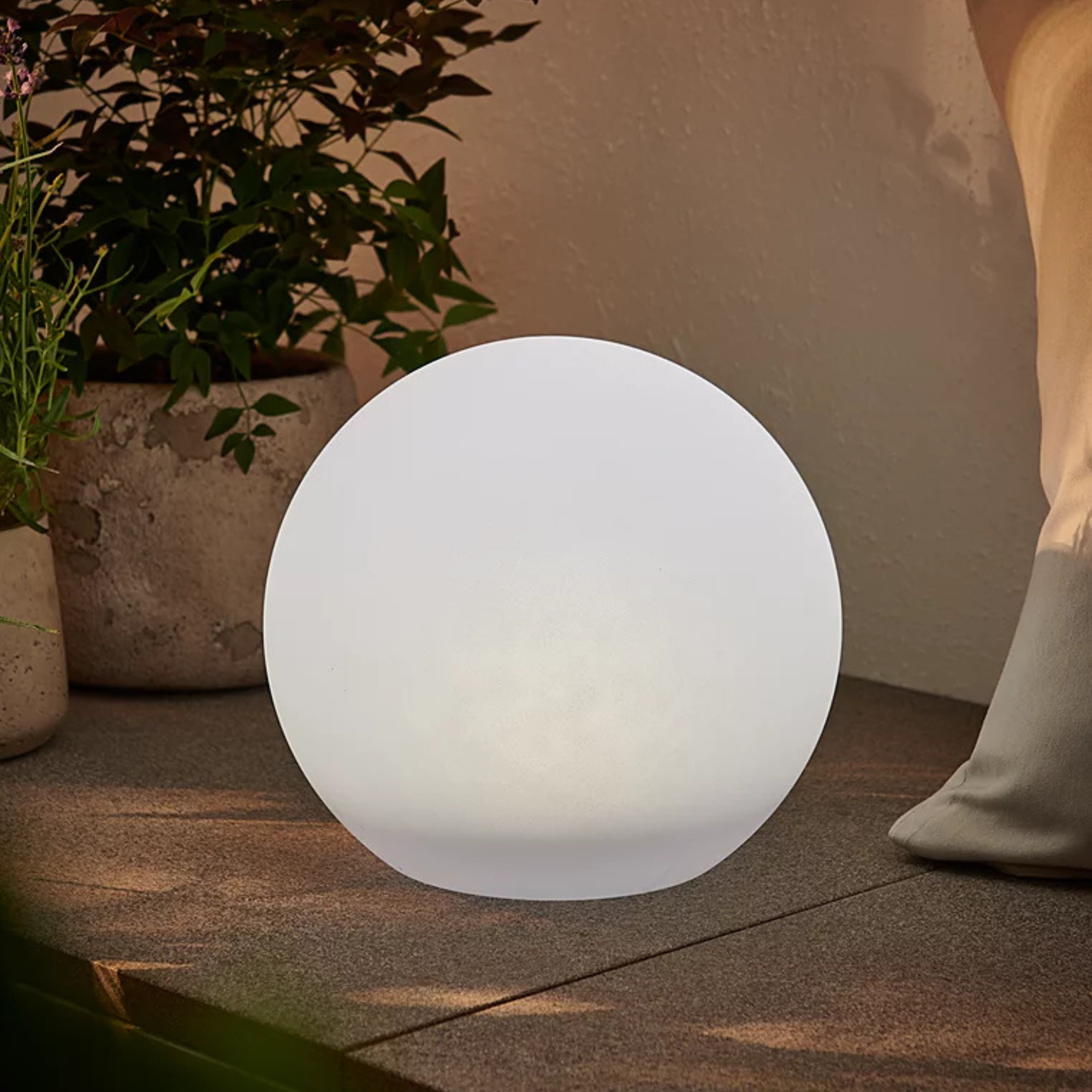 Habitat's solar ball light nails this year’s breakout outdoor lighting trend - this is how to style it at home
Habitat's solar ball light nails this year’s breakout outdoor lighting trend - this is how to style it at homeThis stunning lamp is easy to style
-
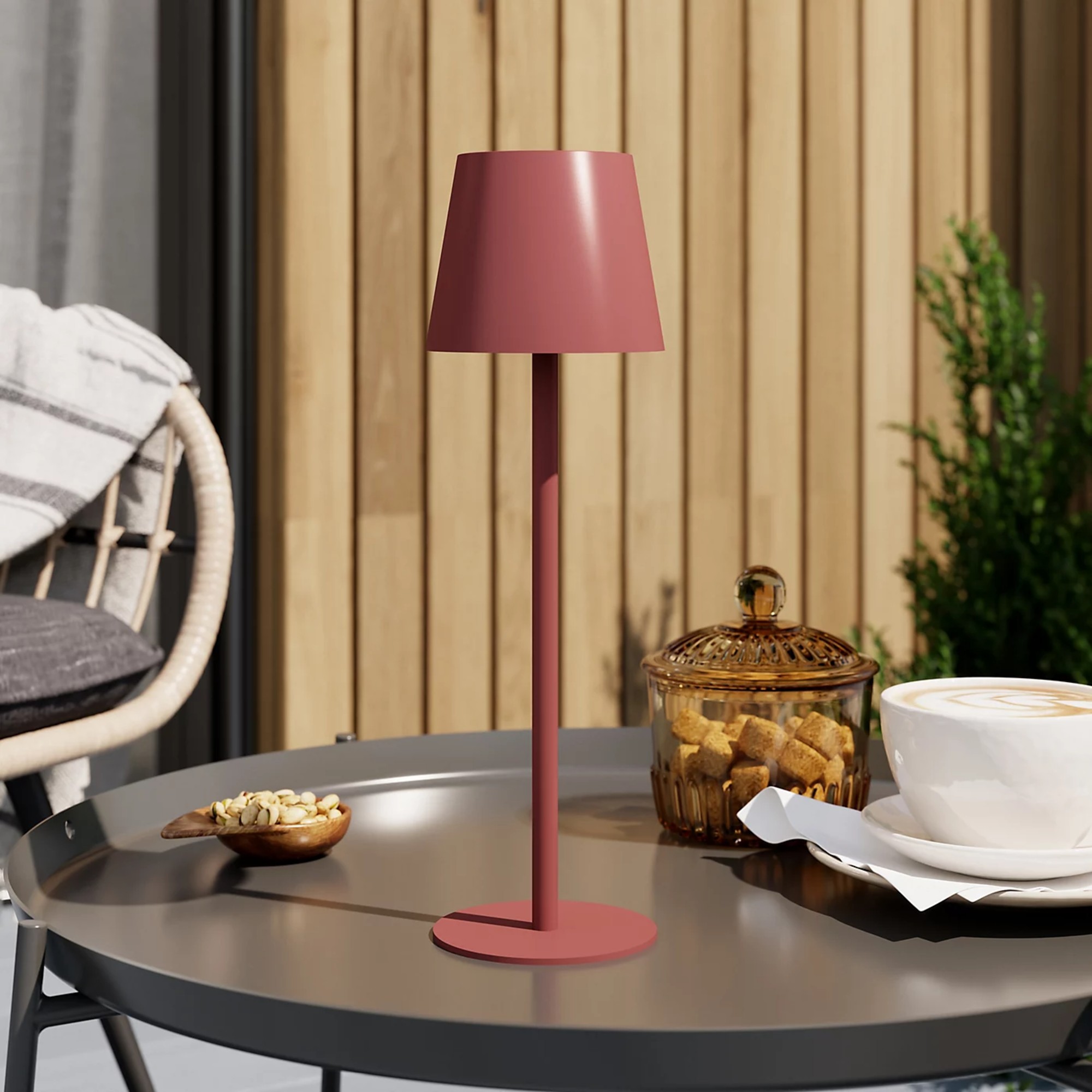 B&Q’s new wireless lamp is the perfect lookalike for Pooky’s popular Scoon lamp – and it’s only £15!
B&Q’s new wireless lamp is the perfect lookalike for Pooky’s popular Scoon lamp – and it’s only £15!If you like Pooky’s Scoon wireless lamp, you’ll love B&Q’s new lookalike selling for a fifth of the original price
-
 Tom Kerridge says this BBQ staple is ‘a really good little investment’ – and I’ve tracked one down for less than £2
Tom Kerridge says this BBQ staple is ‘a really good little investment’ – and I’ve tracked one down for less than £2This bargain buy will make all the difference to your barbecuing skills
-
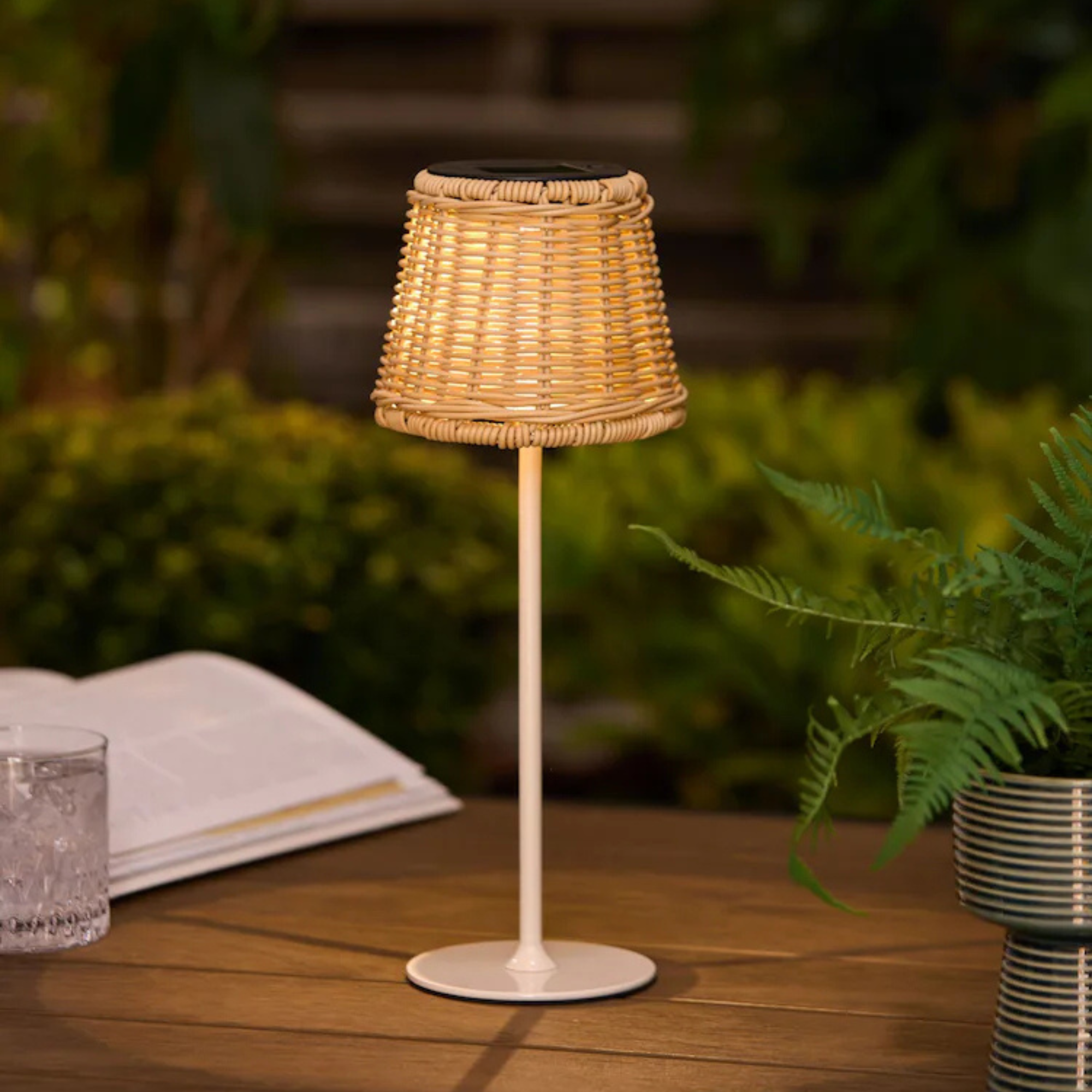 Next just launched the best-looking outdoor table lamp of the summer - the iconic Pooky scoon lamp has competition
Next just launched the best-looking outdoor table lamp of the summer - the iconic Pooky scoon lamp has competitionI couldn't believe the table lamp was only £25!
-
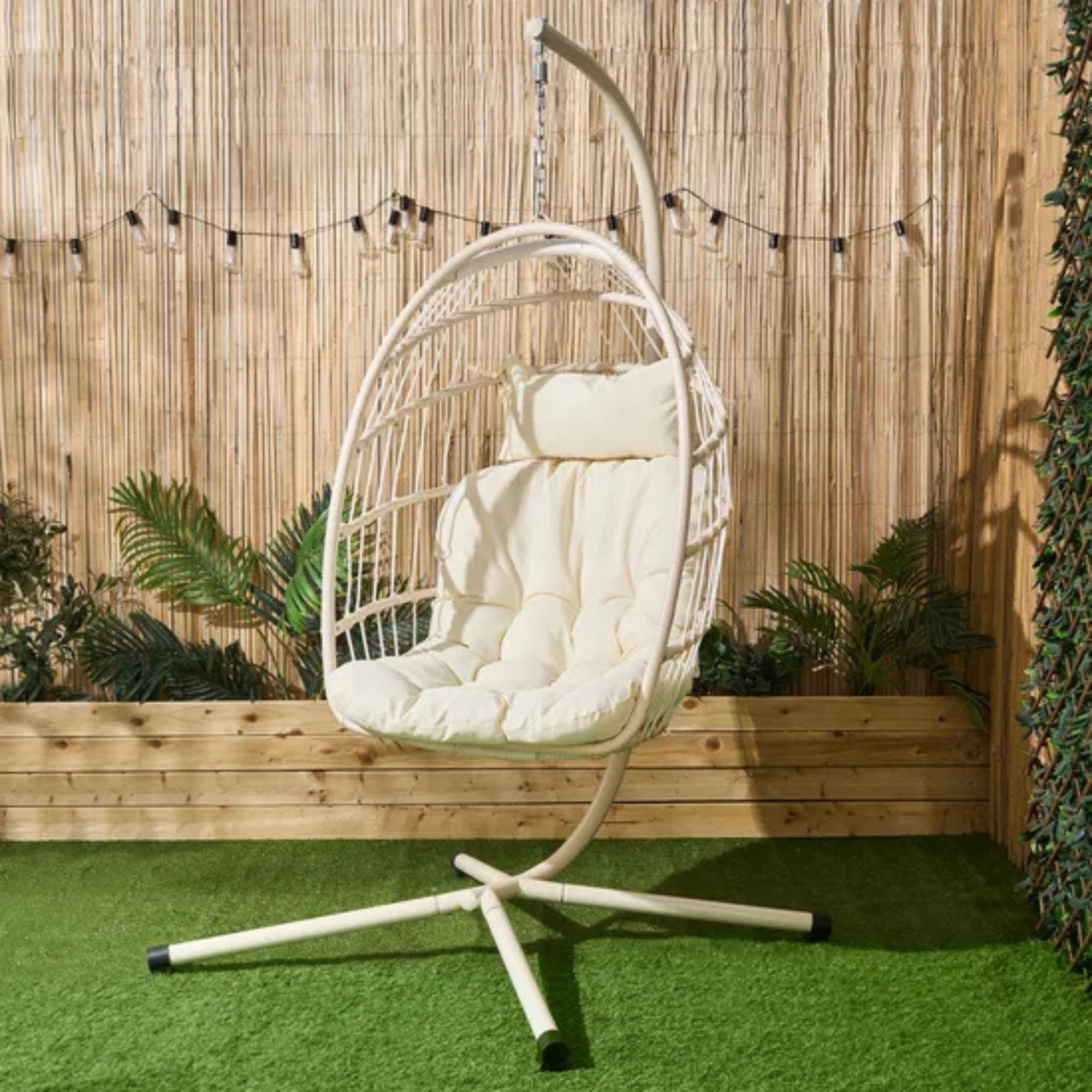 Is Debenhams the new Lidl? I just spotted 3 egg chairs in the sale that are the same price (and cheaper) than Lidl's new hanging chair
Is Debenhams the new Lidl? I just spotted 3 egg chairs in the sale that are the same price (and cheaper) than Lidl's new hanging chairI couldn't believe the prices of these stylish chairs...
-
 Louise Thompson's statement outdoor chair is the star of her charming urban garden – you'd never guess it's an affordable high-street buy
Louise Thompson's statement outdoor chair is the star of her charming urban garden – you'd never guess it's an affordable high-street buyThe reality TV star shared a snap of her charming garden on Instagram – and this chic chair stood out
-
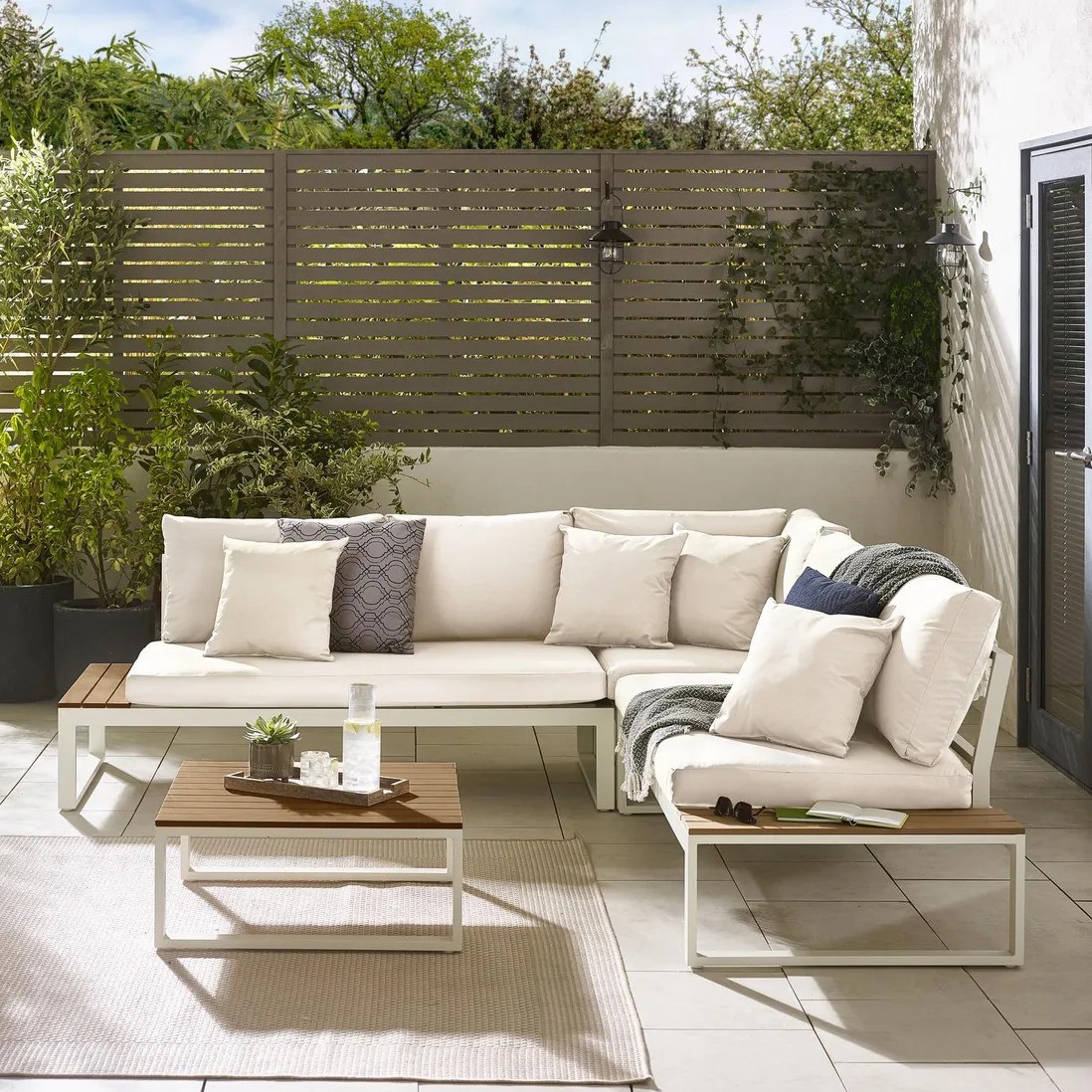 Debenhams just made me do a double-take with this bargain designer-look outdoor sofa
Debenhams just made me do a double-take with this bargain designer-look outdoor sofaThis is the last place I thought I'd find my dream outdoor sofa